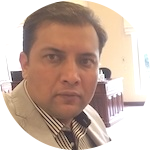The Afghan government has confirmed plans to go ahead with a controversial power transmission project, despite unprecedented protests from members of the country’s Hazara minority.
On 16 May 2016, tens of thousands of ethnic Hazaras took to the streets of the Afghan capital of Kabul calling for the 500kv transmission line from Turkmenistan to Kabul to be altered to pass through two provinces in central Afghanistan, both with large Hazara populations.
In a country where only 38 per cent of people have access to electricity, the protestors accuse the government of marginalising Hazaras by refusing to include these provinces to the transmission line. But the government says the project is only feasible through northern Afghanistan, and that changing the route would cost millions at this stage, setting the project back by years.
With the country gripped by raging violence for decades now, this rare show of defiance by the 2.8 million-strong Hazara community caught many by surprise, including President Mohammad Ashraf Ghani.
Responding to a Hazara heckler at London’s Royal United Institute of Security last month, President Ghani said that the criticism over this Asian Development Bank-funded project had been taken “extraordinarily seriously”.
President Ghani said that while some mistakes had been made around the route of the transmission line, they were too late to reverse.
“Six million people will benefit from this transmission line compared to 10,000 for the alternative,” said President Ghani, who was in London for a highly-publicised anti-corruption summit. He assured attendees that he took the anger of the Hazara community seriously: “Because if you don’t have the tolerance for peoples’ legit anger you cannot guide the destiny of a nation”.
Little comfort
But the president’s words provide little comfort to Afghanistan’s Hazara minority. With their distinct physical features, this Farsi-speaking Shia community feels isolated in the Sunni Muslim nation.
On the day of the 16 May protests, Kabul was literally locked down by security forces. All major roads leading to the Presidential Palace were sealed with shipping containers and the protestors were only granted a single corridor for their rally.
Karim Khalili, who was Vice President three years back when the decision was made, has lead the protests against the current power line route. “We are not protesting for a single community, it is about equality and justice, and people will never keep quiet when facing injustice,” he said.
Following decades of conflict, it has only been two years since the Afghanistan government took over the running of the country’s affairs from NATO. As a result, some analysts believe that this war-torn and multi-ethnic nation needs more political maturity to ensure a smooth transition towards peace and democracy.
Professor Latif Nazari, an expert on political affairs in Afghanistan and a member of the Hazara community, is of the opinion that the power transmission issue must not be allowed to undermine Afghanistan’s delicate ethnic and cultural tapestry.
“During such sensitive times people must not allow external forces to exploit such situations. We need to move towards national unity day by day,” he said.
Alexey Yusupov, country director of the German non-profit Friedrich Ebert Stiftung, says there are numerous reasons for the anger that has fuelled the protests.
“General discontent with the government has been on the rise over the last one and a half years. People facing deteriorating security and a socio-economic crisis are looking for a way to express their dissatisfaction and disillusionment,” he told Equal Times.
Alexey however, noted that the leaders of the protests, especially those who are part of the government, also wanted to show their ability to mobilise people in a bid to solidify their positions within the National Unity Government.
“Putting power lines through [the largely Hazara] Bamyan province will not lead to development and prosperity just like that. Sure, it would strengthen the bargaining position of Hazara leaders in Kabul, but questions of actual development have to be addressed separately,” he said.









